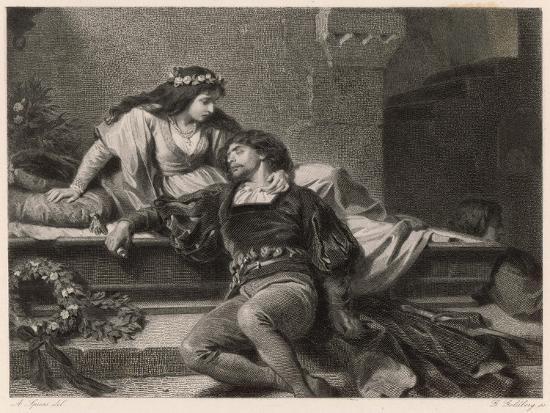Sometimes there was verse in "The Eyrie." The authors of that verse aren't credited in bibliographies. I can understand why. But for the sake of completeness, and for the sake of not missing out on things that might prove interesting and edifying, maybe we need a list of the authors of verse who appeared in "The Eyrie."
William Shakespeare wasn't the first, but his name came up in the February issue of 1925, one hundred years ago this month. That was part of an ongoing discussion on horror and what some readers called "necrophilia" in the pages of the magazine. Following is an excerpt from "The Eyrie." Farnsworth Wright's was almost certainly the editorial voice. (Boldface is added.)
(The quote begins:)
We recently attended a performance of "Romeo and Juliet"; and as we heard Jane Cowl deliver Juliet's speech before she takes the poison, we realized that the same speech, if published in a WEIRD TALES story, would be denounced by some of our indignant readers (not many, but surely by some) as "gruesome", "shocking", "offensive". A few of our good friends would undoubtedly write letters asking us why we so offended against good taste as to draw such a "disgusting" picture of Juliet awaking at midnight in the vault,
"Where, for these many hundred years, the bonesOf all my buried ancestors are packed;Where bloody Tybalt, yet but green in earth,Lies festering in his shroud; where, as they say,At some hours of the night spirits resort: --Alack, alack! is it not like that I,So early waking--what with loathsome smells,And shrieks like mandrakes' torn out of the earth,That living mortals, hearing them, run mad --Oh, if I wake, shall I not lie distraught,Environed with all these hideous fears.And madly play with my forefathers' joints,And pluck the mangled Tybalt from his shroud?And in this rage, with some great kinsman's bone,As with a club, dash out my desperate brains?"
But there will be no indignant letters, because we have quoted this from the thousand-souled Shakespeare. And what about "Hamlet", with the stage strewn with dead bodies in the last act? And the ghost of "the blood-boltered Banquo" at Macbeth's banquet? And that gruesome scene where Macbeth washes his hands of the murdered Duncan's blood:
"What hands are these ? Ha! they pluck out mine eyes.
Will all great Neptune's ocean wash this blood
Clean from my hand? No; this my hand will rather
The multitudinous seas incarnadine,
Making the green one red."
We fear Shakespeare would fare quite badly at the hands of some of our readers. And the gentle Poe, who is still America's favorite author, and growing in popularity year by year (although the man himself died poor and neglected seventy-five years ago) -- how would Poe fare if he were writing today? Hardly better than he fared during his life. But the weird tales of that great master remain as a precious heritage to the whole world.
Considering the present unceasing popularity of the works of this great master of weird literature, we have no fear for the future of WEIRD TALES so long as the magazine remains weird.
(End of quote.)
And now here we are one hundred years later and Weird Tales (such as it is) is still being published.
(By the way, Jane Cowl played Juliet in performances in various places in Illinois in 1923-1924. In November 1924, she was at the Garrick Theatre in Chicago. Maybe that was when and where Farnsworth Wright saw her perform.)
 |
| Romeo and Juliet, Act V Scene III: Juliet Wakes in the Vault to Find Romeo Dead by G. Goldberg. |
Original text copyright 2025 Terence E. Hanley
No comments:
Post a Comment